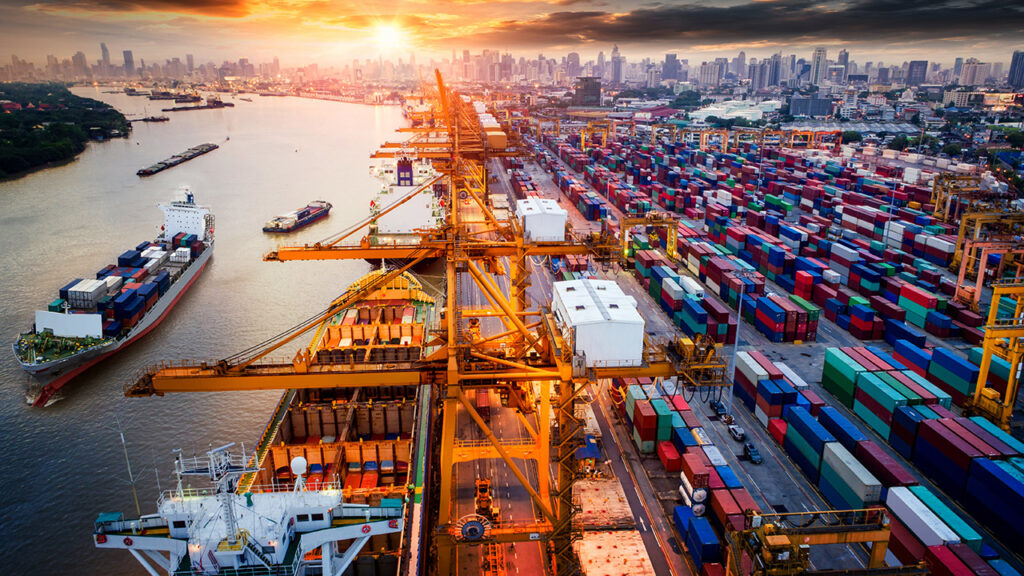
Leveraging AI in heavy civil construction
In this day and age, we’re quickly seeing the digitisation of almost every industry, with advancements such as Artificial Intelligence (AI) being a key frontrunner enabling this shift.
Despite these changes, construction and civil engineering are still yet to see the benefit – reported to be amongst some of the least technologically-advanced sectors worldwide. Naturally, this brings with it a multitude of problems for the industry as a whole.
The sector’s inability to advance is in part due to the inherently manual nature of the industry, and of course the time, money and effort it takes to implement such advanced technologies. However, with the world advancing rapidly, the civil engineering industry needs to keep up the pace – and AI could be the answer.
So, how can heavy civil construction companies harness the power of AI and use it to maximise the full potential of their construction projects?

As it stands, the lack of tech in the construction industry can easily make every project overly complicated, leading to delays, uninformed decision-making, a lower quality end product and of course, a lot of time and money wasted. But that’s where AI can help.
AI refers to systems that simplify and automate processes, mimicking human functions such as problem-solving and pattern recognition. AI is an umbrella term for various different subsets within it, such as machine learning, which is when a machine has the ability to learn from data. The more data it sees, the smarter it gets.
While AI is quickly being leveraged in many industries across the globe, construction and civil engineering is still yet to widely adopt it. However, it’s got huge potential.
With the industry currently suffering from several hits, such as recessions, the lasting impact of the pandemic and skills shortages, AI can simplify the design and construction of civil works, automate processes to reduce manual labour and more – potentially making these issues a problem of the past.
The realms of AI are limitless, and its potential within the world of construction and heavy civil engineering is an incredibly exciting prospect.
With the ability to benefit various stages of every process, from the most mundane to advanced aspects such as safety monitoring systems, AI acts as a powerful tool for scrutinising piles of data and more to improve productivity, safety and cost-effectiveness.
It’s predicted that around 69% of construction projects go over budget, and this is often caused by a lack of foresight and insufficient planning. And though this goes without saying, going over budget can be incredibly detrimental to profitability.
However, harnessing the power of AI can prove a powerful tool in combating these budget issues. Leaning on historical data from previous projects, AI systems can formulate a predictive model that includes a realistic timeline for completion, predicting cost and time overruns based on things such as project size, contract type and more.
New technologies such as camera-equipped robotic systems based on AI can move through a site to acquire 3D images. Then, using the help of neural networks, these images can be compared with data and information from the BIM model, to accurately track the progress of the project.
Similarly, AI-enhanced drones are already being used on sites to give additional perspectives on project progress. Firms are working on training these drones to ‘understand’ what they see, so they have the potential to monitor productivity levels and spot dangerous activity. This way, everything stays on track, on time and hopefully, stays on budget.
Every single construction and engineering project comes with its own kind of risks, whether this be in terms of cost, time, quality and of course, general health and safety.
Using AI, general contractors can monitor and prioritise the level of risk on certain projects, allowing the team to pool their time and resources on the areas that pose the biggest risk and require the most attention. That way, site managers don’t waste their already limited tools on sites that don’t require it.
For example, AI-generated algorithms might ‘ask questions’ and look towards historical data about things such as previous projects, machine uptime and downtime, weather patterns and more – all in a bid to produce a risk score.
The construction of any civil work, whether that be a road, a bridge or a building, will require intricate preliminary planning and design considerations – a process in which AI softwares and tools can streamline. Generative design – which could be considered one of the most valuable AI-enabled tools for the industry – allows engineers to explore all kinds of different variations of a model to find the best possible option.
Following this, AI generative design then helps to strengthen building information model (BIM) processes. BIM tools help civil engineers facilitate the design of accurate 3D models prior to any construction work. And paired with the AI design tools, engineers can improve their designs enormously using data from past projects, models and simulations.
It’s no secret that construction firms could massively elevate their productivity through automation and real-time data collection and analysis – hence, AI.
It’s a given that AI can streamline many low-value, but time-consuming tasks that would typically take a human touch, a huge benefit given today’s current talent shortage. With the ability to sift through mounds of data, AI can complete tasks that would typically take hours in a matter of minutes.
Additionally, with the current understaffing crisis, it’s important to understand where workers are needed and where they’re in excess.
AI can be deployed on sites to evaluate the project’s progress and report back with real-time insights. As a result, project managers can instantaneously see where sites have enough workers and equipment, and which might be at risk of falling behind schedule. That way, PM’s can appropriately spread their workers across various sites and projects to ensure productivity levels are at a maximum.

Taking all of the above into consideration, it’s clear that artificial intelligence can be considered a driving force for the future of heavy civil construction.
Adopting smart, AI-enabled systems can be a driving force for transforming and advancing our world, helping to improve work efficiency and help build smarter, more sustainable buildings, railways, sewer systems, roads and more. Though the implementation of AI comes with high costs, the reduction in time, money and risk factor makes it worthwhile.

In this day and age, we’re quickly seeing the digitisation of almost every industry, with advancements such as Artificial Intelligence (AI) being a key frontrunner enabling this shift.

In previous years, businesses choosing to offshore their manufacturing operations and processes overseas was commonplace, becoming particularly popular for companies in the US.

Though the world we live in is filled with water, it still remains an incredibly finite resource with only a tiny portion of it declared safe for human consumption.